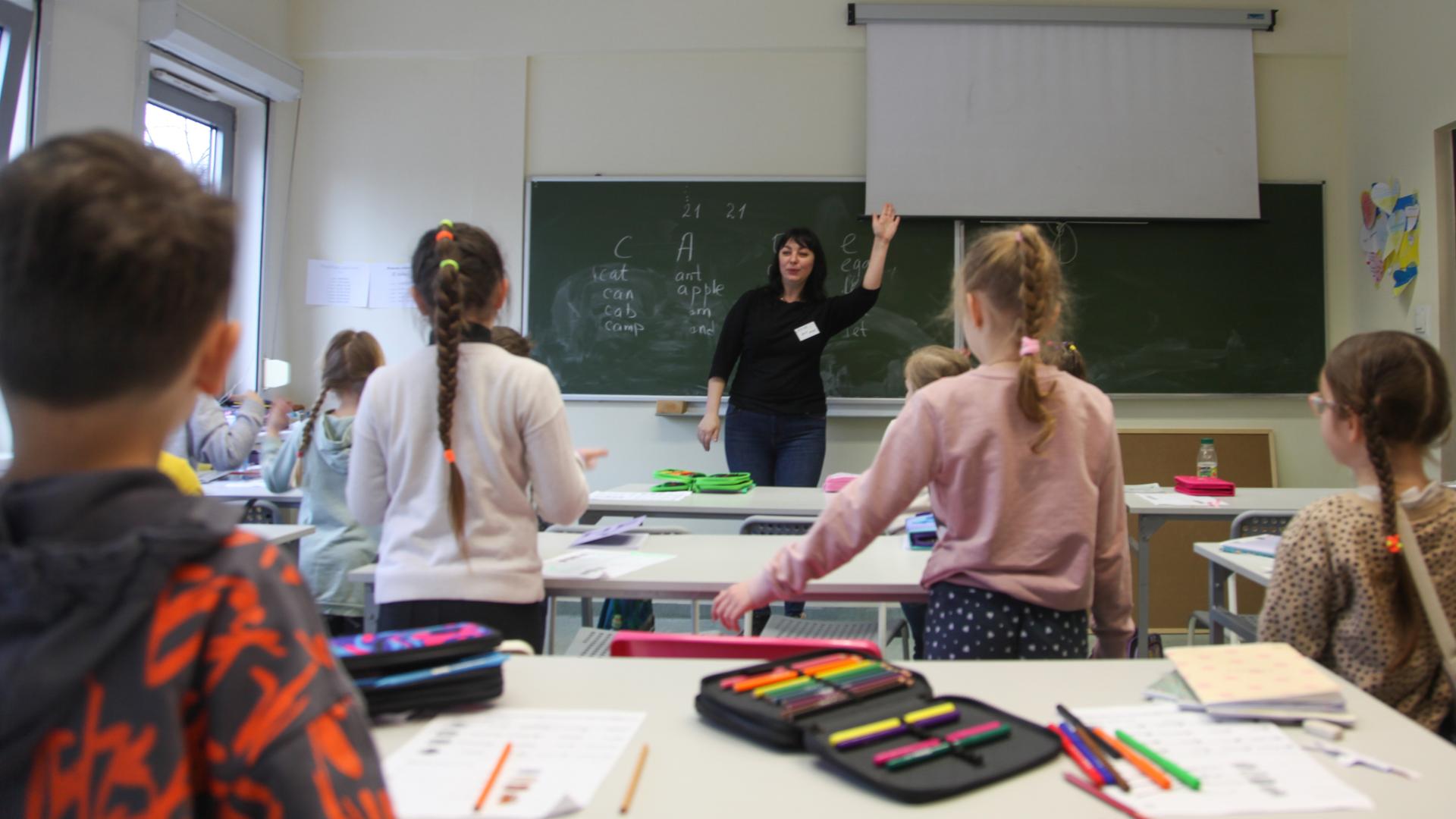The halls at the new Warsaw Ukrainian School (SzkoUA), in Warsaw, Poland, are already lined with all kinds of student artwork. One drawing shows Ukrainian Easter bread. Another holiday-themed picture reads, “Stop War,” in English and Polish.
The over 200 students in grades one through 11 fled some of the most dangerous spots in Ukraine: Mariupol, Kharkiv, Bucha and Irpin.
Related: ‘Home is home’: Ukrainians in Poland consider options as Russia’s war enters new phase
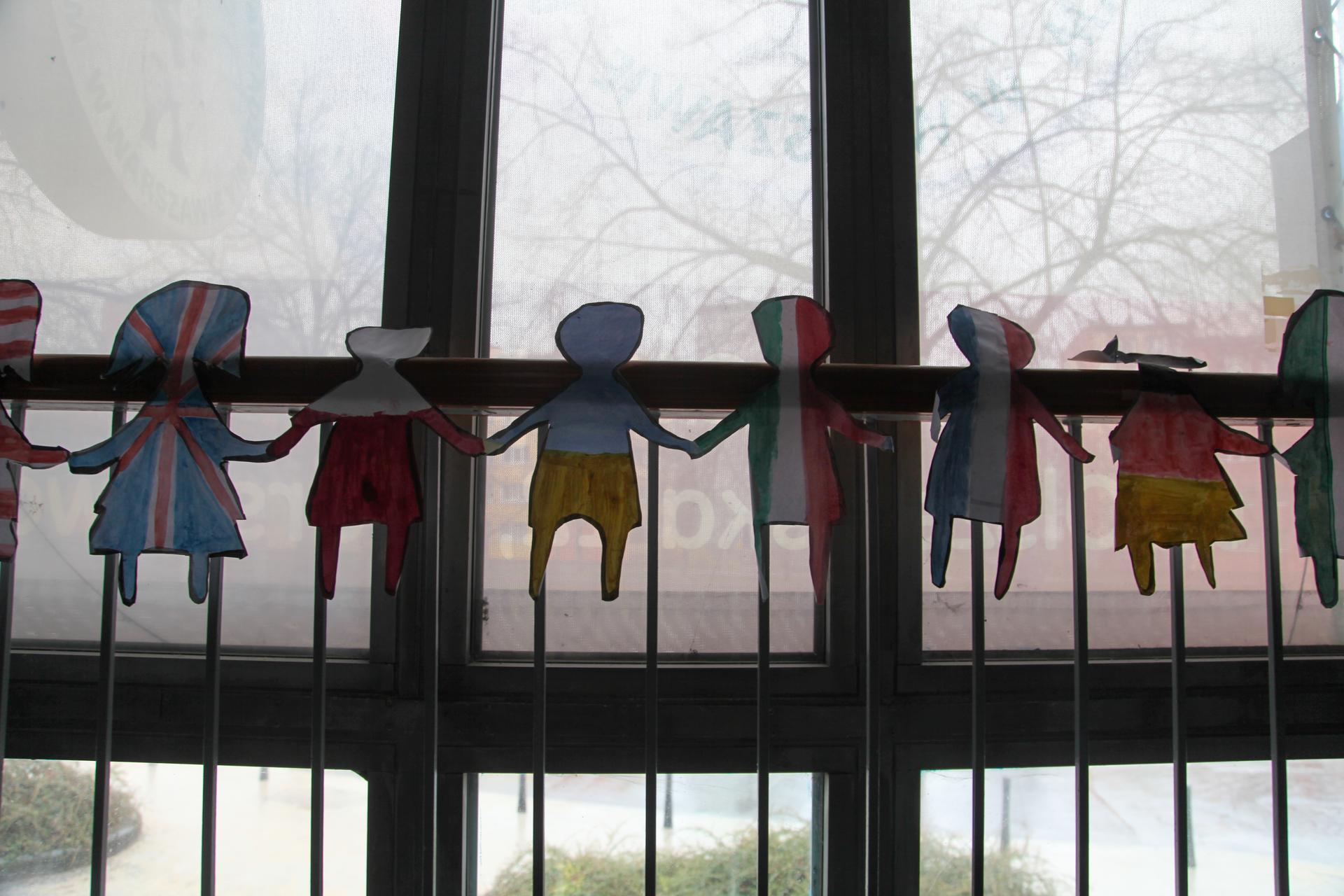
The school’s director, Oksana Kolesnyk, herself escaped bombings in Chernihiv with her daughter, who is in fourth grade, on March 6.
“These children who are studying here, truly their problem is that their lives collided with war.”
“These children who are studying here, truly their problem is that their lives collided with war,” Kolesnyk said.
Russia’s full-scale invasion of Ukraine on Feb. 24 interrupted the school year for millions of Ukrainian children who still had three months left. Polish schools have opened their doors to these students, but many parents say that they still want their children to get a Ukrainian education.
Related: Even once female Ukrainian refugees reach safety, they face new burdens as single heads of household
So, in recent weeks, some Ukrainians in Warsaw have opened their own schools to let these displaced children finish the school year in their own language and according to their own education system.
The province where Warsaw is located has taken in more Ukrainian refugees than any other area of the country and already had a sizable diaspora community with support from Ukrainian House and other nongovernmental organizations.
At the Warsaw Ukrainian School, which opened on April 11, spots filled up rapidly — they may accept as many as 270 students.
Classes are conducted in Ukrainian — a priority for many refugee parents who say that they are more determined than ever to raise their children holding their Ukrainian identity close. That includes those who had spoken Russian at home up to now, according to Kolesnyk.
Kolesnyk said that the school is careful not to stigmatize them, though: “We are creating a comfortable environment here, so that no matter what part of Ukraine a child is from, they feel comfortable.”
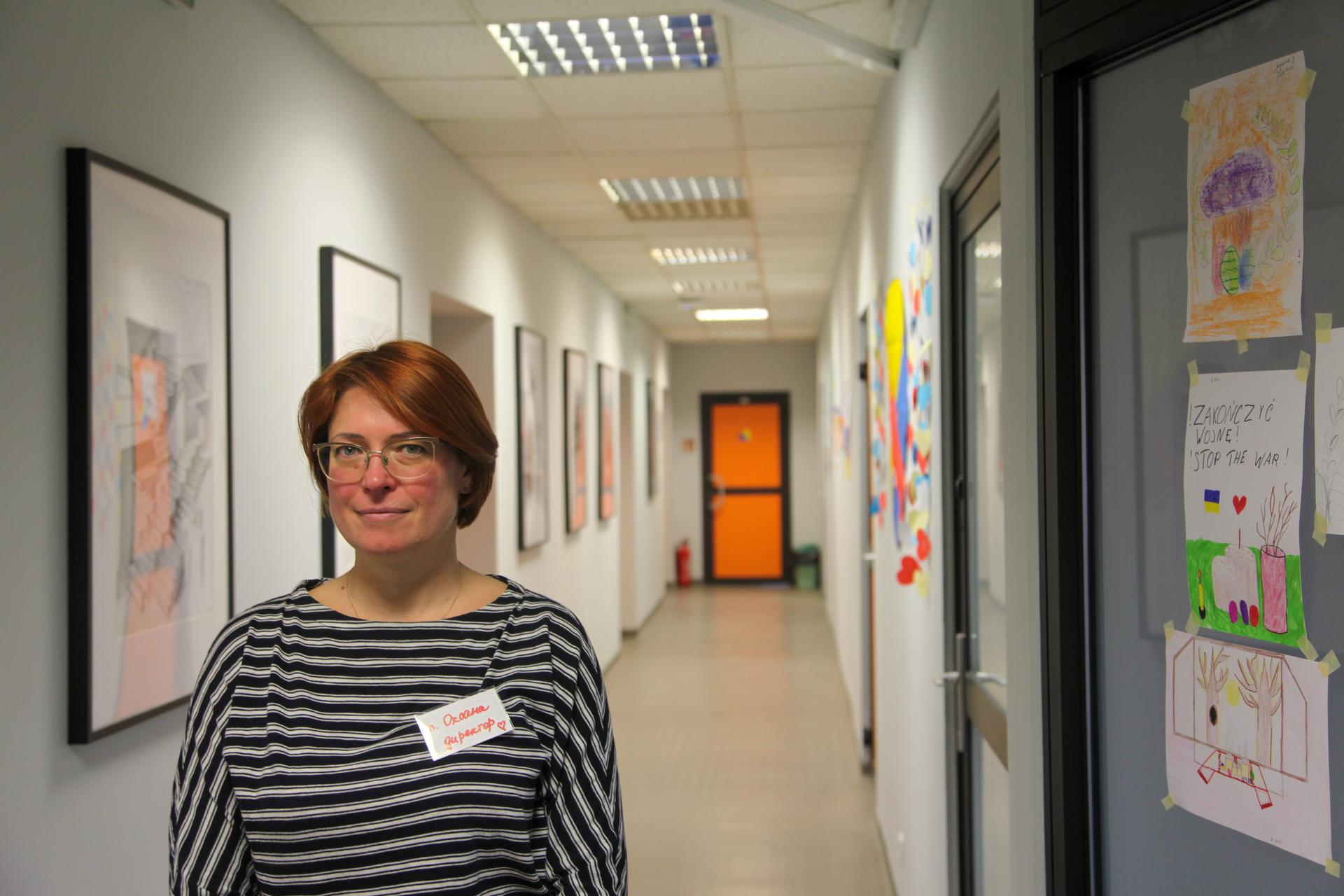
With so many Ukrainian adults looking for work in Poland, teaching roles at the school were competitive as well; there were 600 applications for 22 spots, according to Kolesnyk.
She said that the staff hopes that the school won’t have to be open for long.
Related: At the mouth of the Black Sea, a ship spotter watches for clues amid Ukraine war
“We all want to go back home,” Kolesnyk said. “But for now, there are places where there is nothing to go back to. And that’s why talking about future prospects — we can’t.”
This same story is playing out all over Poland, where there are now more than 1 million Ukrainian children, according to UNICEF information from March. Some schools in Ukraine are still up and running in a remote capacity, with students logging on from wherever their families have landed.
Eighth-grader Yllia, who is living in a rural village in southeastern Poland, is pulling double duty.
“Right now, I’m studying at two schools at once. … Ukrainian school through distance learning so that I won’t be counted out. And here [in Poland] in school to learn the language.”
“Right now, I’m studying at two schools at once,” she said. “Ukrainian school through distance learning so that I won’t be counted out. And here [in Poland] in school to learn the language.”
The Polish and Ukrainian systems of education are different. Yllia, like many Ukrainian students, needs to take exams in Ukraine to get into the next level of learning.
Some parents say that a big concern for them is making sure that their children are able to resume their education without missing a step by the time they hopefully return home.
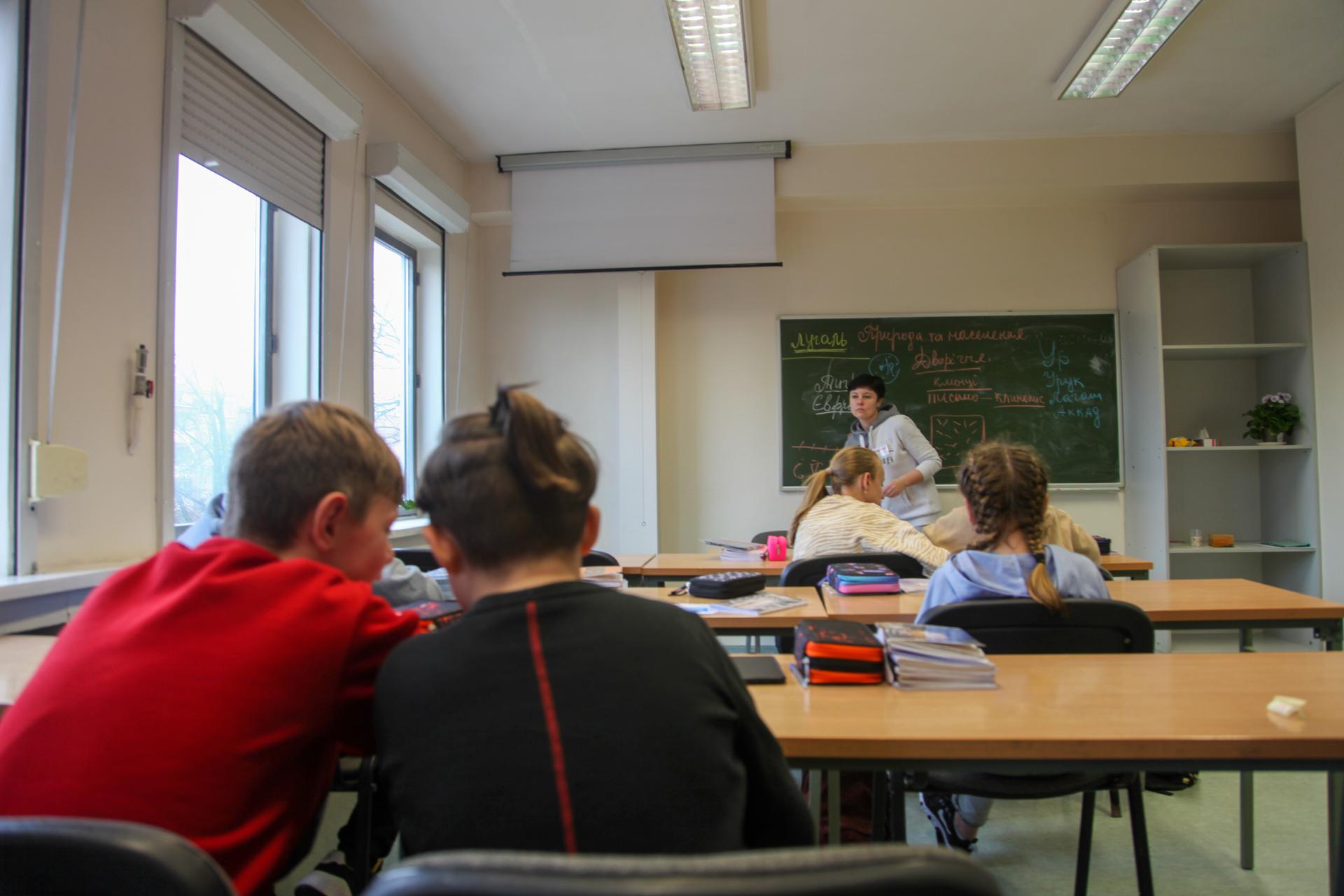
Back in Warsaw, in another part of town, 9-year-old Denys had finished his evening classes at another Ukrainian school, named the First Ukrainian School in Poland, started by the foundation, Unbreakable Ukraine.
His mother, Polina Aydin, picked him up at the end of the school day. She wore pearl earrings and her hair in an impeccable bun and an oversized shirt featuring the British rock band The Cure.
If her shirt looked out of place, there’s a good reason, she said: When she left Kyiv, she had just 20 minutes to get her son and her mother packed and out the door, so she had only the clothes she was wearing.
“When we came here, I had to buy something affordable,” she said. “It’s not winter anymore.”
Aydin wanted Denys to continue getting a Ukrainian education because they hope to return home to Kyiv one day.
Related: No Z allowed: Some European countries move to ban the symbol used to promote Russia’s war in Ukraine
Unbreakable’s school in Warsaw, which has 79 students, is currently being run out of a Polish school building — hence, the evening classes.
Its staff say they are hoping to find a more permanent solution for next year. The group has also started two other schools, one in Krakow and another in Wrocław, but both of those are being run online. In total, in grades one through 11 at each site, they are serving over 600 students, according to school information.
“He is very happy that there are five or seven children in the class,” Aydin said. “And this is good because there is a personal approach, and the lady [the teacher] is also from Ukraine so psychologically, they understand each other very well.”
But Aydin is also insisting that her son learn to speak Polish.
“We are living here, and I want him to be able to say something [in Polish] and we don’t know how long we will stay here.”
“We are living here, and I want him to be able to say something [in Polish] and we don’t know how long we will stay here,” she said.
Third grader Denys is already making his first friends at the Unbreakable school and said that his new teacher is sweet and not as strict as his old one back in Kyiv.
“Here it’s great, it’s better than my school in Kyiv,” he said. “But I still miss my school in Kyiv.”
Denys has been reading the news closely. He said that there’s no telling what Russia’s President Vladimir Putin and Belarus President Alexander Lukashenko might do, and it’s possible that the Russians will again try to take Kyiv.
“We don’t know what’s in the heads of these two psychopaths,” he said.
Nataly Rovitskya is hyperaware of the fact that these kids are conscious of living through war. She’s the director of Denys’s school and since 1990, she worked at the School No. 66 in Mariupol, the first Ukrainian-language school in a widely Russian-speaking region, according to Rovitskya.
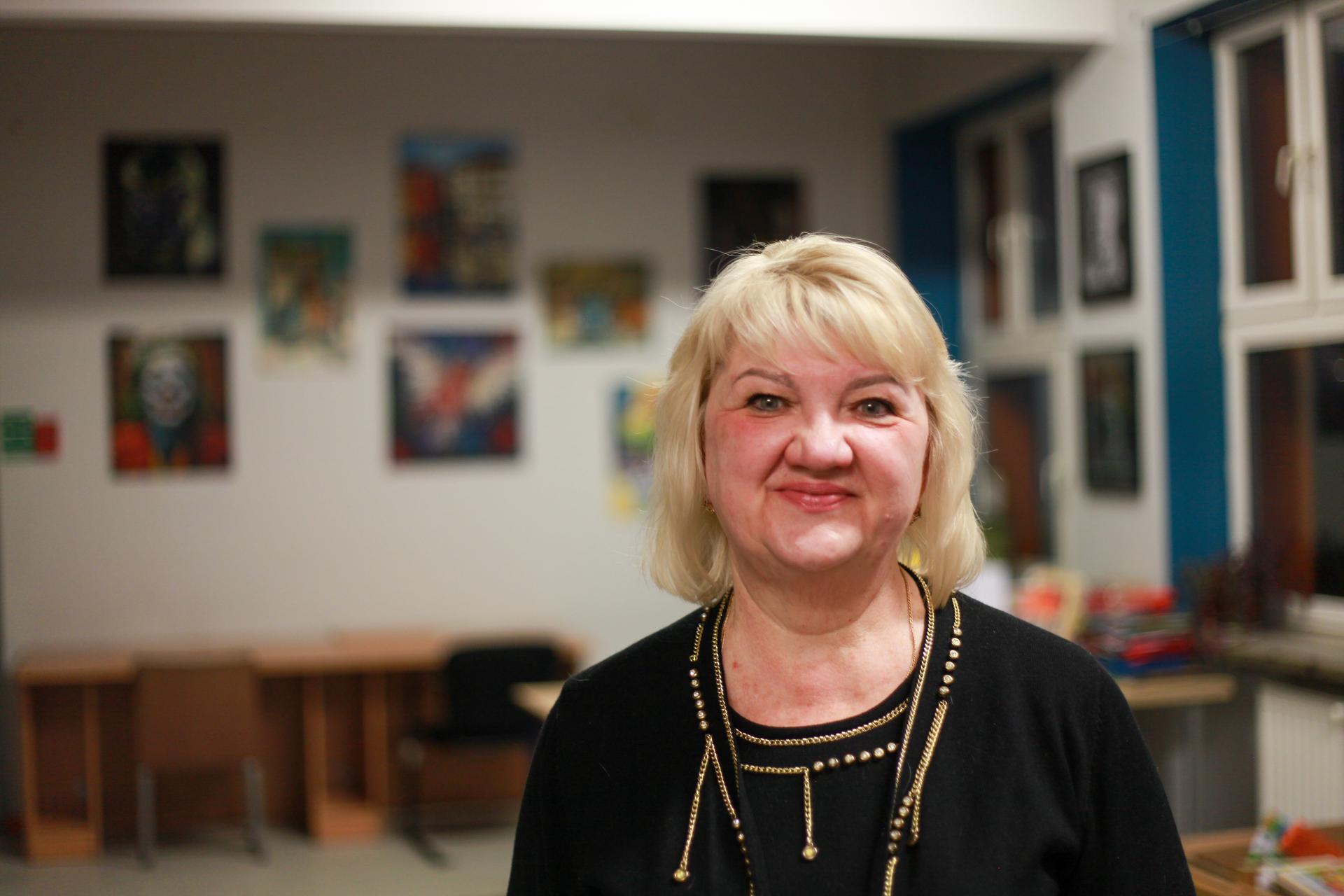
Rovitskya spent 20 days sheltering in a basement from the constant bombing in Mariupol before she made it out, arriving in Poland in early April.
“They need to study and not have it be difficult,” she said. “And for it not to be difficult, they need to learn in their native language.”
At the Unbreakable school, she said, they try not to use the word “war.” They take an individual approach with students, asking them how they are doing on a daily basis. But all of them, teachers included, are dealing with trauma.
“Right now, this work and this project is giving me a chance to live because here there are children, our Ukrainian children, and I work for Ukrainian children,” Rovitskya said. “All I can do, I will do for Ukrainian children. But [in] my soul, it’s very difficult, my heart is breaking.”
Classes run through June at the Unbreakable school. What next year will look like for Ukrainian schoolchildren scattered around the world is uncertain.
Our coverage reaches millions each week, but only a small fraction of listeners contribute to sustain our program. We still need 224 more people to donate $100 or $10/monthly to unlock our $67,000 match. Will you help us get there today?
